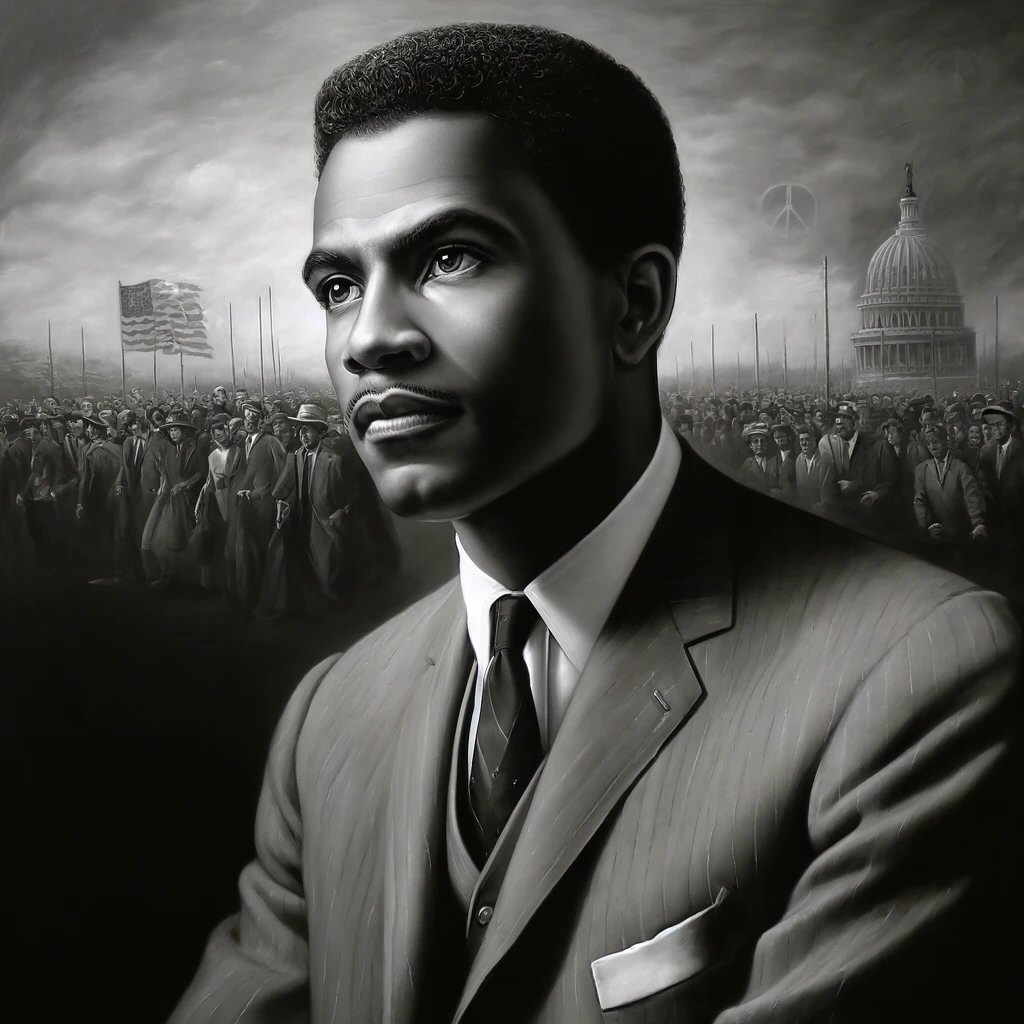 |
"Bias & Bigotry" |
||||
| More... |
Bayard Rustin was born on March 17, 1912, in West Chester, Pennsylvania, to Florence Rustin and Archie Hopkins, although he was raised by his maternal grandparents, Julia and Janifer Rustin. Believing Janifer and Julia to be his parents and Florence his sister until adolescence, Rustin was deeply influenced by his grandmother’s active involvement in the NAACP, which sowed the seeds of activism in him from a young age. Rustin excelled in academics and sports at his racially integrated high school and later attended Wilberforce University, Cheyney State Teachers College, and the City College of New York, although he never completed a degree. His Quaker upbringing significantly shaped his commitment to non-violent protest and civil rights. The social environment Rustin navigated was fraught with racial tension and systemic discrimination. The mid-20th century America was a crucible of change, with the burgeoning civil rights movement seeking to dismantle decades of segregation and racial injustice. Amid this backdrop, Rustin’s own identity as a gay man added another layer of complexity to his activism. Homosexuality was criminalized, and being openly gay could lead to significant personal and professional risks. Rustin's sexual orientation forced him into the background of the civil rights movement he helped shape, as his presence as a gay man was often seen as a liability by some of his fellow leaders. Despite these challenges, Bayard Rustin's achievements are a testament to his perseverance and visionary leadership. As the chief organizer of the 1963 March on Washington for Jobs and Freedom, he orchestrated one of the largest and most successful protests in U.S. history, which culminated in Martin Luther King Jr.'s iconic "I Have a Dream" speech. Rustin also advised Martin Luther King Jr. on the techniques of nonviolent resistance, significantly shaping the direction of the movement. Later in life, he advocated for gay rights, recognizing the similarities in the struggles for civil rights and gay rights. His legacy is one of courage and principle, demonstrating that personal and social adversities can be transcended through resilience and a steadfast commitment to justice. Reference: Wikipedia.org |
||||
|
|
